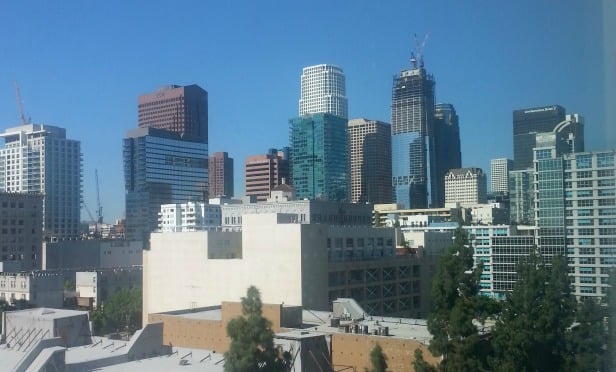 Elon Musk can never quite live up to his company's name. The Boring Co. has announced preliminary plans to build an underground high-speed zero-emissions tunnel from the Eastside of Los Angeles to Dodger Stadium. The 3.5-mile project has plenty to get excited about: it would reduce the traffic to Dodger Stadium, the commute time to four minutes and carbon emissions in a city plagued by traffic and smog, all for about $1 per trip. The potential impacts are significant, but one of the most innovative things about the project is a private company leading a mass transit project in Los Angeles. If successful, the project could serve as a blueprint for more private-public partnerships, as we'll call them, in Los Angeles, and potentially more innovation.
Elon Musk can never quite live up to his company's name. The Boring Co. has announced preliminary plans to build an underground high-speed zero-emissions tunnel from the Eastside of Los Angeles to Dodger Stadium. The 3.5-mile project has plenty to get excited about: it would reduce the traffic to Dodger Stadium, the commute time to four minutes and carbon emissions in a city plagued by traffic and smog, all for about $1 per trip. The potential impacts are significant, but one of the most innovative things about the project is a private company leading a mass transit project in Los Angeles. If successful, the project could serve as a blueprint for more private-public partnerships, as we'll call them, in Los Angeles, and potentially more innovation.
“There have been various public-private partnerships, but in Los Angeles, I haven't seen anything of this scale, complexity or cost with a private entity leading the charge,” Fernando Villa, a partner at Allen Matkins, tells GlobeSt.com. “It is typically public agencies that lead the charge. This is a nice precedent-setting kind of project that could, if successful, be the blueprint for similar public-private partnerships.”
The Boring Co. isn't wasting any time getting started. They have a public meeting today that will kick off the environmental review process. Of course, this project isn't without challenges, starting with the land-use. The Boring Co. plans to use public right-of-way or buy or lease private land to make the tunnel and the corresponding stations. “Provided there are public rights of way, you will have to enter into those agreements with the city and others that own the public rights of way. There maybe some private land acquisitions that need to be undertaken,” says Villa. “The Boring Co. might be able to do that on its own of it would have to enter into a arrangement with the city to exercise its power of condemnation. The city has those powers within certain limitations, and one of those limitations is that there has to be a public purpose. In this case, it creates its own set of challenges. Condemnation might not be necessary; after all, this is all subterranean. This might be able to be done through public rights of way and private property negotiations, but these are the first round of land-use challenges the Boring Co. would need to overcome.”
There are also potential community challenges. While city leadership, including Mayor Eric Garcetti, and Dodger's ownership, has already come out in support of the transit line, residents of the adjacent Chavez Ravine could potentially have some concerns about the project. “The residents of Chavez Ravine might have some concerns regarding the proposed development,” says Villa. “They might see a benefit in having access to this transportation line to connect them to the entire metro grid through Union Station, so there are definitely some benefits, but there could also be some opposition. It could be that residents don't want the potential for significant increase in traffic and catalyzing mixed-use development around Dodger Stadium.”
While there could be potential challenges, none of them are inhibiting, and there are clear benefits to the project. Mass transit development in Los Angeles generally been slow, with many complicated moving parts. Villa, however, says that a private project, especially one from the Boring Co., will likely come to fruition much more quickly. “One of the things that I have learned is that when the ownership puts its mind to getting something done, they get it done at a mind-boggling pace and with mind-boggling results,” he says. “If the economics make sense for the Boring Co., which I suspect they do, I think that you will see this type of project get approved, get built and become operable in an increasingly faster way than you would see with a typical public agency.”
© Touchpoint Markets, All Rights Reserved. Request academic re-use from www.copyright.com. All other uses, submit a request to [email protected]. For more inforrmation visit Asset & Logo Licensing.






